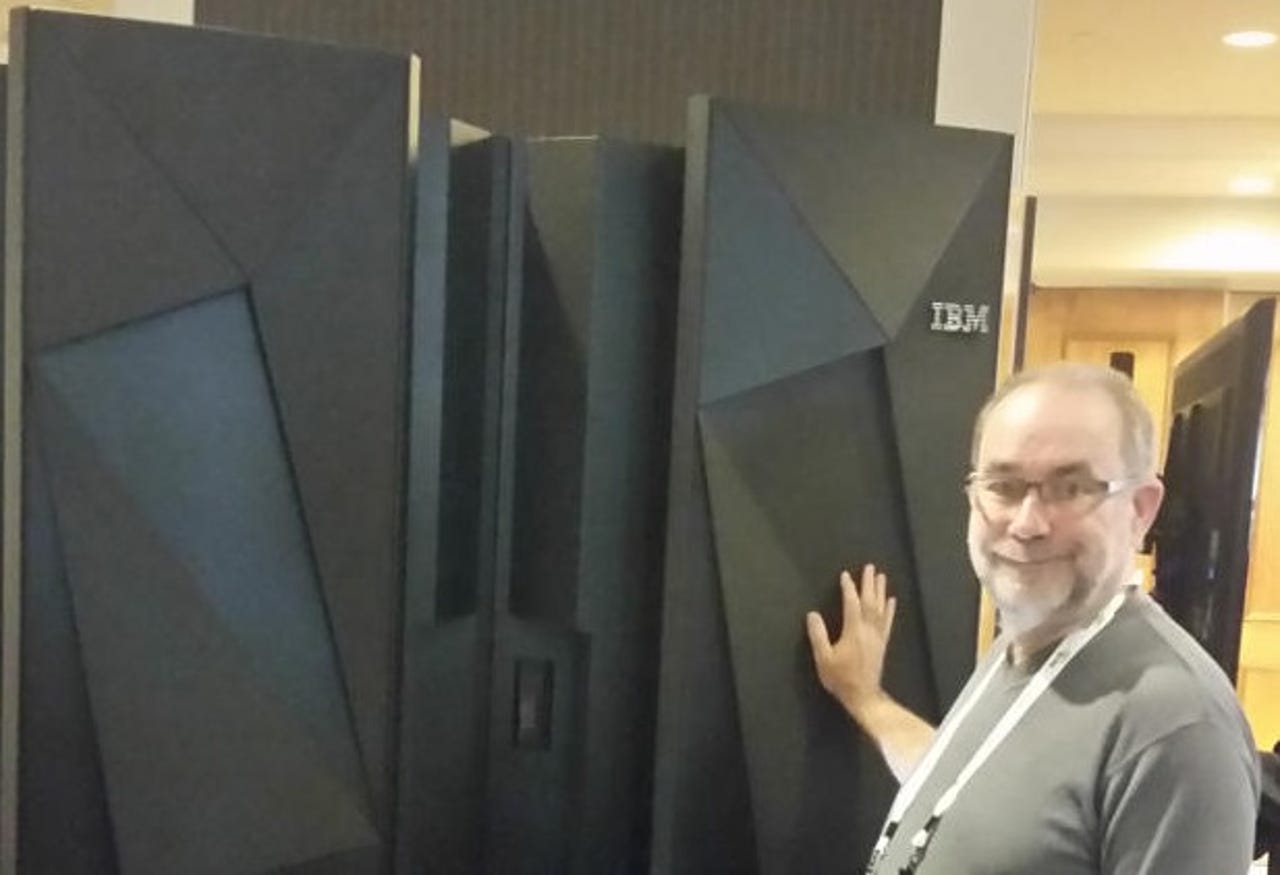The mainframe lives on in IBM's LinuxONE

IBM invested a billion dollars in Linux in 2002. Some things remain the same. Last year, IBM introduced LinuxONE, a new pair of IBM mainframes along with Linux and open-source software and services. These new systems are the LinuxONE Emperor, which built on the IBM z13 mainframe and its z13 CPU, and its little brother, Rockhopper, which is now moving from the older z12 processor to the z13.

The LinuxONE Emperor mainframe can handle up to a million Docker containers at once.
IBM is making the LinuxONE the centerpiece of its hybrid cloud efforts. Specifically, IBM LinuxONE will soon have these new software and partner enhancements.
First IBM is optimizing its Cloudant NoSQL and StrongLoop Node.js technologies into LinuxONE to enable clients to develop, deploy and manage applications for the hybrid cloud more quickly and easily.
Cloud
Cloudant, an enterprise-grade fully managed NoSQL database, stores data in JavaScript Object Notation (JSON) format. StrongLoop provides enterprise-class tools for developing APIs using Node.js, the environment based on JavaScript. This enables developers to write applications for the server side natively.
While IBM is promoting LinuxONE as a hybrid cloud solution, it doesn't work smoothly with IBM's Softlayer public cloud offering. It coordinates more easily with OpenStack clouds.
Speaking of OpenStack via work with SUSE, SUSE's OpenStack tools will be employed to manage public, private and hybrid clouds running on LinuxONE.
Canonical's Ubuntu Linux distribution will soon finally be available on LinuxONE. In addition, its Ubuntu OpenStack cloud tool sets -- Juju, Metal as a Service (MAAS), and Landscape -- will be available for LinuxONE clients. With Ubuntu's addition to the existing SUSE and Red Hat distributions, organizations now have a third option for LinuxONE system. Ubuntu 16.04, codenamed Xenial Xerus, will be the first version of this Linux distro to fully support LinuxONE mainframes.
According to Kathryn Guarini, LinuxONE's VP, while Red Hat Enterprise Linux (RHEL) is supported on LinuxONE, Red Hat's OpenStack is not currently supported. Guarini added that "IBM hopes Red Hat's OpenStack will soon also be available on LinuxONE."
IBM is also incorporating Go language support into LinuxONE. Go is designed for building simple, reliable and efficient software. This summer, IBM will begin contributing code to the Go community.
In March, IBM will be adding IBM Open Platform (IOP) to the IBM LinuxONE portfolio at no additional cost. IOP includes support for Apache Spark, Apache HBase and Apache Hadoop 2.7.1.
Last, but far from least on the software side, IBM has improved LinuxONE's already considerable Docker support. IBM has proven that its high-end LinuxONE Emperor is capable of supporting up to one million Docker containers.
IBM will also be updating the LinuxONE hardware. Both the Emperor and Rockhopper, will boast faster processors.
"IBM is strengthening its expansion into the open community, providing developers more choice and flexibility with LinuxONE," said Ross Mauri, general manager, IBM z Systems and LinuxONE in a statement. "The platform's broadened ecosystem and new hybrid cloud capabilities underscore the security, efficiency and performance that clients need, while delivering the flexibility and possibilities of open source they love." LinuxONE already supports a broad range of popular open-source tools such as Apache Spark, Node.js, MongoDB, MariaDB, PostgreSQL, and Chef. The new LinuxONE Systems Portfolio is scheduled to appear in March.
Related Stories: